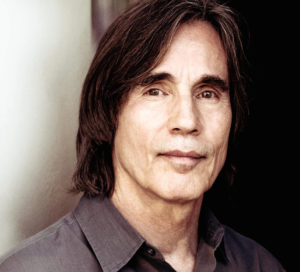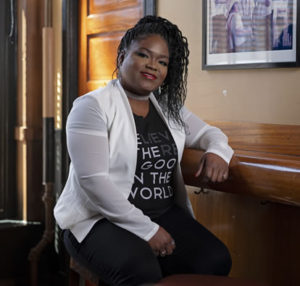Austin City Limits was disheartened to learn of the death of the legendary Dr. John of a heart attack on June 6, “at the break of day,” according to a statement released by his family. The Night Tripper was 77. He is survived by his wife, three daughters and sister.
The multi-Grammy winner and Rock & Roll Hall of Famer was born Malcolm Rebennack on November 20, 1941 in New Orleans. At 13 he met Big Easy piano great Professor Longhair, a lifelong mentor. By the fifties he was one of the city’s first-call session guitarists, recording many sides for legendary producer Cosimo Matassa. He switched primarily to the piano only after having one of his fretting fingers shot in a bar fight in 1960, and became one of the New Orleans greats at the keyboard.
Following a mid-sixties stint in a Texas prison on drug charges, Rebennack moved to Los Angeles, joining a group of fellow New Orleans expatriates led by producer Harold Batiste and eventually ending up in the world-famous Wrecking Crew. A lifelong student of New Orleans voodoo, Rebennack created the character of Dr. John, combining the nascent psychedelia of the period with stories about the Senegalese prince of the same name, a nineteenth century NOLA spiritual and medicinal healer. Originally developed for his friend Ronnie Barron, the identity passed on to its creator when Barron was contractually obligated elsewhere. Dr. John the Night Tripper released his first album Gris-Gris in 1968, putting his own distinctive spin on New Orleans culture and reintroducing the city’s music and iconography to a new audience. He went even further with 1973’s Gumbo, a collection of Big Easy classics like “Iko Iko” performed in a more traditional (or as traditional as the Night Tripper would ever get) style that really brought the music of his hometown back to the masses.
Dr. John spent the rest of his long career alternating between celebrating his city’s jazz, blues and funk heritage and exploring a tripped-out ether all his own. He scored a top 10 hit with the irresistibly funky “Right Place, Wrong Time,” produced by Big Easy icon Allen Toussaint and performed with Neville Brothers precursors the Meters. He put his piano heroes Professor Longhair and James Booker back in the spotlight with 1981’s remarkable solo piano album Dr. John Plays Mac Rebennack. He won the first of his six Grammys in 1989 for “Makin’ Whoopee,” a duet with Rickie Lee Jones from his album In a Sentimental Mood, a collection of pre-rock & roll standards. He won a Best Traditional Blues album Grammy for 1992’s Goin’ Back to New Orleans, a rollicking batch of NOLA standards that he brought to the ACL stage in Season 18. He spent the next quarter of a century going back and forth between tributes to his influences (Duke Ellington on 2000’s Duke Elegant, Johnny Mercer on 2006’s Mercernary, NOLA music godfather Louis Armstrong on 2014’s Ske-Dat-De-Dat: The Spirit of Satch, his final album) and albums that dug back into his Night Tripper roots (1998’s Anutha Zone, 2001’s Creole Moon, 2012’s Locked Down, produced by Dan Auerbach and another Grammy winner).
Here is Dr. John performing “Goin’ Back to New Orleans,” from his 1993 appearance on Austin City Limits.
Austin City Limits #1803: Dr John – “Going Back to New Orleans” from Austin City Limits on Vimeo.
Rebennack became an activist for New Orleans following hurricanes Katrina and Rita, releasing the EP Sippiana Hericane in 2005 to benefit the New Orleans Musician Clinic and 2008’s groovy, scathing City That Care Forgot, another Grammy winner. He appeared in the Band’s 1978 concert film The Last Waltz and PBS’s 1995 A Tribute to Stevie Ray Vaughan (recorded in ACL’s Studio 6A), contributed to the soundtrack of Disney’s New Orleans-set cartoon musical The Princess & the Frog (itself based loosely on NOLA activist and chef Leah Chase, who died just a few days before John) and served as the inspiration for Dr. Teeth, leader of the Muppets’ house band the Electric Mayhem. He was inducted into the Rock & Roll Hall of Fame in 2011 and received an honorary doctorate from Tulane University in 2013, becoming, as some wags noted, Dr. Dr. John. He returned to ACL in 2017 to join fellow NOLA all-stars in a salute to Fats Domino during the induction of N.O. legends the Neville Brothers for the ACL Hall of Fame. That appearance ultimately became his last performance as he retreated from public life shortly after.
An in-demand collaborator, over the years Dr. John performed with everyone from the Rolling Stones to Van Morrison to Spiritualized. He is as much of an icon in New Orleans music as Louis Armstrong, Allen Toussaint and Irma Thomas. The world is a brighter, stranger, groovier place for having him in it.
“As an entire generation of music icons continues to fade away, Dr. John not only embodied but in many ways personified an entire era of New Orleans musical culture,” comments ACL executive producer Terry Lickona. “It took us almost 20 years to get the good Dr. to the ACL stage in 1993, but he was in rare form and obviously enjoyed himself. It was an honor to have our stage be his last public performance in 2017, honoring the great Fats Domino. You can’t help but smile when you think of Dr. John.”
Here’s the conclusion to Dr. John’s ACL episode, with the Night Tripper boogieing off stage left to the funky strains of “Capucine” as he’s boogied out of this mortal coil. He will be greatly missed.
Austin City Limits #1803: Dr John – "Capucine" from Austin City Limits on Vimeo.


